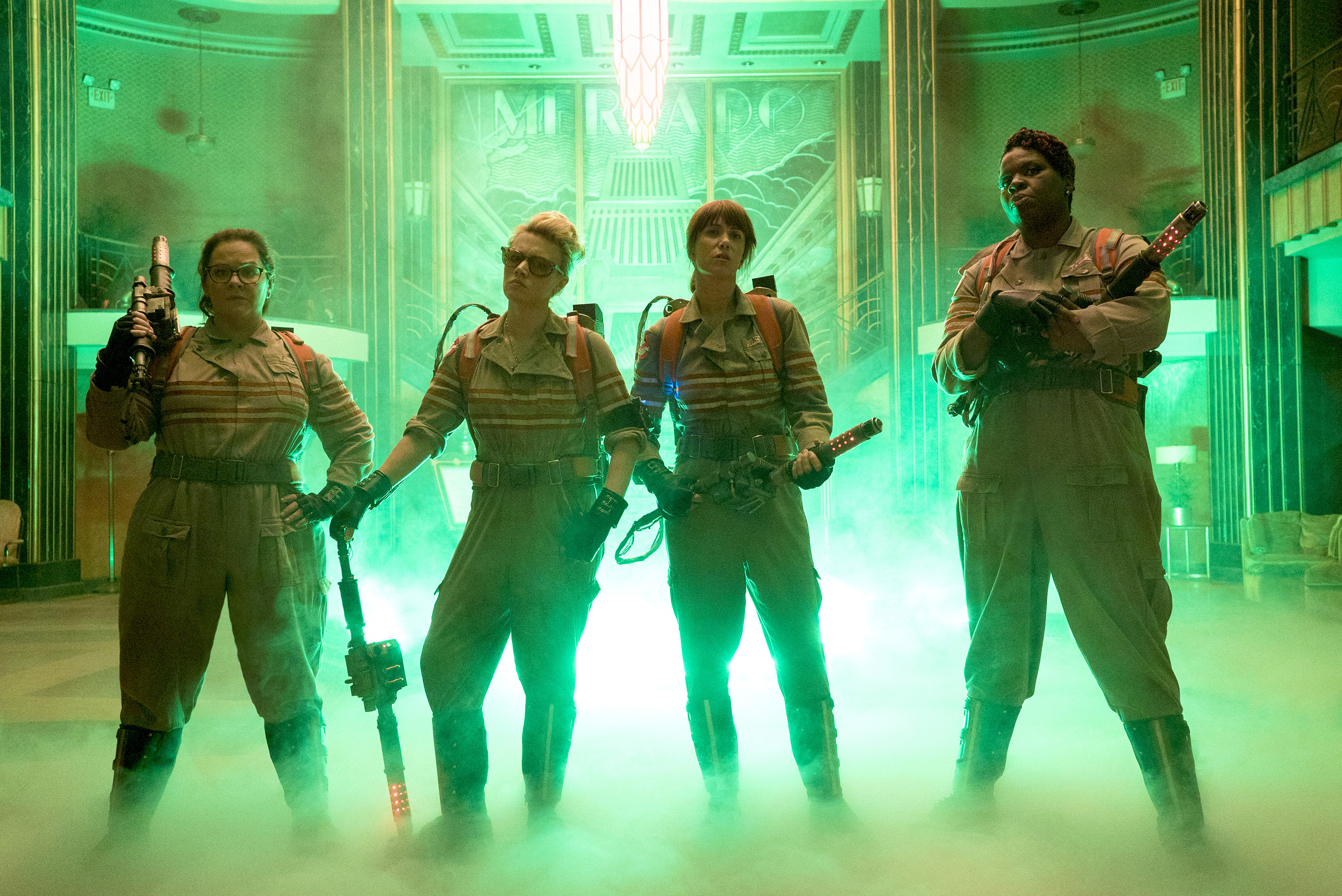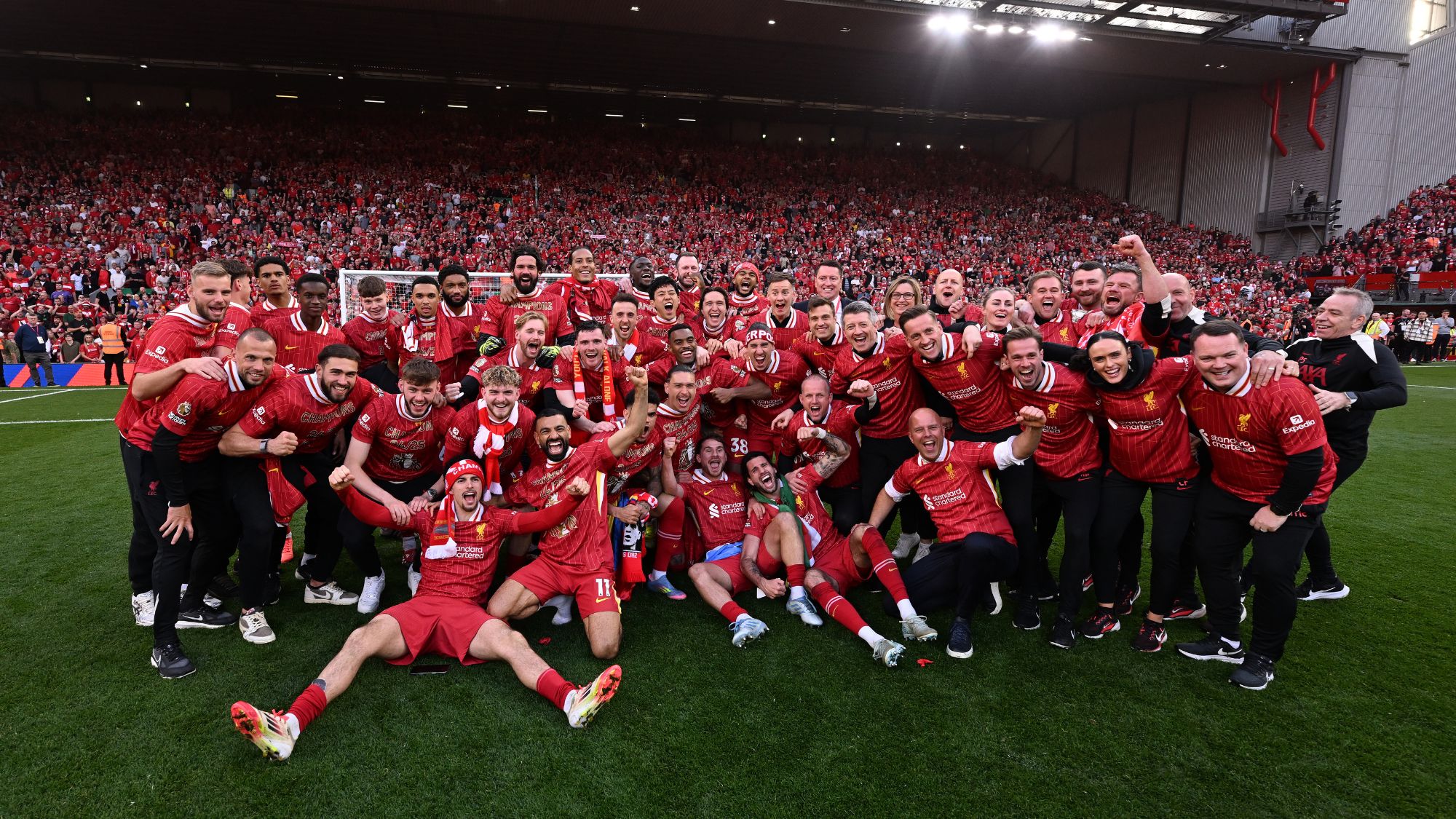Ghostbusters' nostalgia problem
The original Ghostbusters shaped many a childhood in ways the new film simply cannot. And that's ok.


Decades from now, sociologists will study the Ghostbusters Wars. They'll try to reconstruct the events that led to internet campaigns, downvote brigades, Twitter abuse, and the publication of thousands of articles both condemning and defending a fluffy and funny movie months before anyone had even seen it.
They might wonder if this crisis was sparked by a specific moment in American history. Was it the surreal and overlong primary season that precipitated this depth of feeling? Or the feeble economy? Or the grim progression of mass shootings? The demonization of sugar? But the Ghostbusters Wars actually can't be about any of these things, not just because we're a frivolous people, but because movies — unlike television — are glacially slow responders to the pressures of the present. Case in point: The Tom Hanks vehicle Sully is coming out a full seven years after Chesley Sullenberger landed U.S. Airways Flight 1549 in the Hudson River. Movies lumber. They're accidental time capsules for the half-decade we left behind; that's their power, but also their problem.
Here's what really happened: The Ghostbusters remake, released Friday after months of controversy, got caught at the unpleasant intersection of two ley lines in the culture wars. One is the giant backlash against the feminist pressure that made the movie possible in the first place. It's a backlash that shares a lot of DNA with the Gamergate movement, but there's more to it. While gamers vs. feminists might constitute the immediate backdrop to the Ghostbusters Wars, the movie is fighting a bigger demon: the angst of a generation obsessed with its own nostalgic ghosts.
Subscribe to The Week
Escape your echo chamber. Get the facts behind the news, plus analysis from multiple perspectives.

Sign up for The Week's Free Newsletters
From our morning news briefing to a weekly Good News Newsletter, get the best of The Week delivered directly to your inbox.
From our morning news briefing to a weekly Good News Newsletter, get the best of The Week delivered directly to your inbox.
Remakes themselves are ghostbusters. They make consumers of the product they're supplanting anxious. If you're old enough to have experienced the original, what any remake communicates is that your pleasure — your sense of fun — is literally incomprehensible to a new generation. It needs to be translated. Worse, it needs to be updated, tuned to the present clime. Remakes don't just measure our age, then; they measure the distance the culture has drifted from a phenomenon with which we once connected. If someone copies a film we value and "improves it" by introducing differences we interpret as morally corrective, we bristle.
This is especially true among the demographic whose nostalgia has been most frenetically catered to. This demographic doesn't respond well to feeling old and left behind and preached at. The whole thing leaves a sour taste. Such a demographic might get defensive and describe an enjoyable but extremely silly (and pretty incoherent) movie from the '80s that they liked when they were kids using overblown terms like "classic" or "game-changer."
Indeed, critics of the new Ghostbusters movie had a hard time talking about a film they hadn't seen without talking about how the original defined their childhoods. What's good for the goose is good for the gander, so here's what it meant to me: not much. As a girl-kid in the '80s, I loved Slimer and the proton packs and the logo and the Staypuft Marshmallow Man. That was it. The Ghostbusters were boring (except Winston — I liked Winston). I remember vaguely envying the messy dirty fun the fellas got to have, but I didn't find them that funny. Maybe their humor didn't feel available to me? In any event, it seemed clear that our fun-streams could never cross.
But I've also discovered my memory of the original had some gaps: While preparing to write about this remake, I mentioned to my partner that one thing I liked about the original Ghostbusters was how little it mattered that the four principals were guys. "Gender isn't important to the plot!" I said. Swapping to women would be simple. He stared at me and suggested I rewatch the original. I did, and wow: It is a much more symbolically dudely text than I recalled. Bill Murray creeps on college co-eds, asks the librarian if she's menstruating, and his best insult to the EPA guy is that he has no penis. Plus, those nozzles on the proton packs are certainly suggestive, and some of the ghosts are downright pornographic.
Sign up for Today's Best Articles in your inbox
A free daily email with the biggest news stories of the day – and the best features from TheWeek.com
Still, it's a fun film! Rewatching it in these acrimonious times, I appreciated how secondary Ghostbusters' sexism felt to its playfulness. Shooting ghosts by peeing on them together! YEAH! The Ghostbusters didn't hate women at all; they just didn't have much use for them unless it was for flirting (or weapon-testing). Their jouissance was untainted by the fury that animates Gamergate-types for whom this version of masculine innocence is no longer available.
There's a beauty to that, to guys from the '80s, untroubled by feminist complaints, who get to play-hunt and make jokes and pee at ghosts together. It helped that the ghosts barely registered as a threat; up until the very end, the Ghostbusters were getting the glory of firefighters for being the spectral equivalent of dog-catchers. You could be goofy and stupid and funny and hailed as a hero. Awesome.
No 2016 remake could reproduce all of these conditions. Especially not with women. The level of security you need to feel to be your loopiest, most playful self isn't often afforded to women in film or TV (shows like Gilmore Girls and Murder, She Wrote are notable and interesting exceptions). Nor, frankly, is the absence of anger. Given the hurricane of abuse critics hurled at everyone involved in the all-women Ghostbusters following its announcement, it was hard to imagine a version of the film that wouldn't be at least a little angry.
So I'll admit it: I was worried. I feared the remake wouldn't be able to capture that magic mix of ebullience and deadpan ease that made the original so fun. It had to overcome a lot of stuff the original wasn't burdened with.
But it did. The new Ghostbusters is absolutely faithful to the original's drunk sense of joyful play, thanks mostly to Kate McKinnon's dementedly brilliant Holtzman and Leslie Jones' charisma as Patty. There aren't as many body jokes, but there are some.
The movie also manages to sustain this humor while addressing some ways in which the world might work differently for female Ghostbusters: The foursome is never embraced by the city the way their male ancestors were (instead they're repeatedly humiliated and discredited by the mayor, who takes public credit for their work). The film nods early and often to its trolls with references to YouTube and Reddit.
It's an amazingly apt adaptation that I think improves on its source-text. From the aesthetics (whoever designed the ghosts worked extremely hard to match the '80s-era phantasms using modern technology) to an absolutely brilliant appropriation of the GB logo, the movie rollicks around the original's stomping grounds, but it never stomps. It's a loving tribute. As far as anger goes, in Melissa McCarthy's hands, even the film's more pointed jabs are made with a matter-of-fact ease.
It will be interesting to see how the Ghostbusters Wars develop — whether the people who so deeply resented the concept will keep raging after seeing the thing itself. They may! The new Ghostbusters is hilarious, but its humor may not be to everyone's taste.
But — here's the crucial thing — neither was the original, and these days, there are arguably other childhoods to take into consideration.
Lili Loofbourow is the culture critic at TheWeek.com. She's also a special correspondent for the Los Angeles Review of Books and an editor for Beyond Criticism, a Bloomsbury Academic series dedicated to formally experimental criticism. Her writing has appeared in a variety of venues including The Guardian, Salon, The New York Times Magazine, The New Republic, and Slate.
-
 Escape to the Scottish countryside at Dunkeld House Hotel
Escape to the Scottish countryside at Dunkeld House HotelThe Week Recommends Roam, revive and relax at this luxury hotel in a wooded riverside Perthshire estate
By Catherine Garcia, The Week US
-
 Liverpool's Anfield redemption: how did they do it?
Liverpool's Anfield redemption: how did they do it?Talking Point Arne Slot's blueprint and standout player performances guide the Reds to record 20th league title
By Rebekah Evans, The Week UK
-
 Codeword: April 29, 2025
Codeword: April 29, 2025The Week's daily codeword puzzle
By The Week Staff